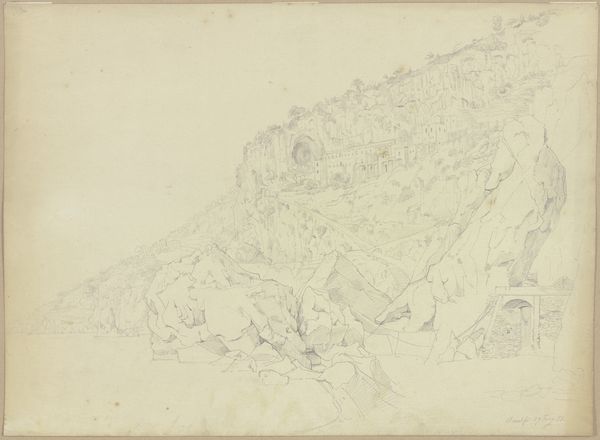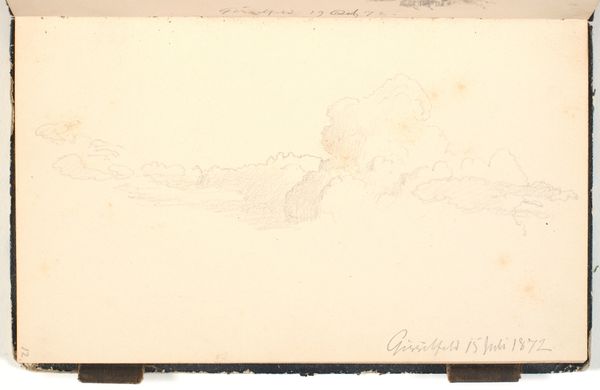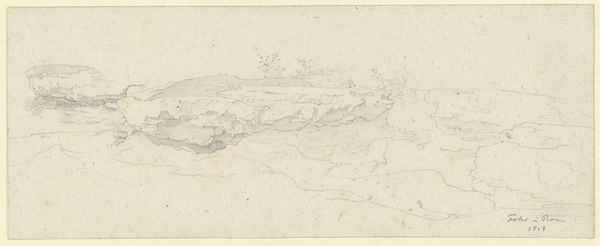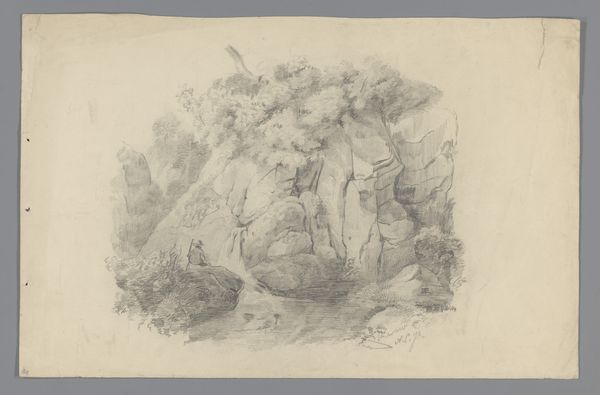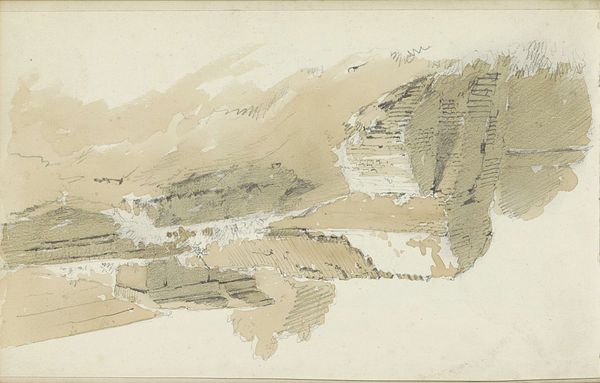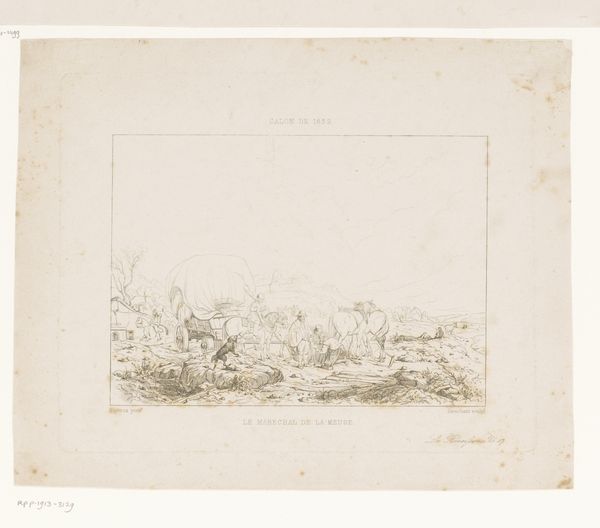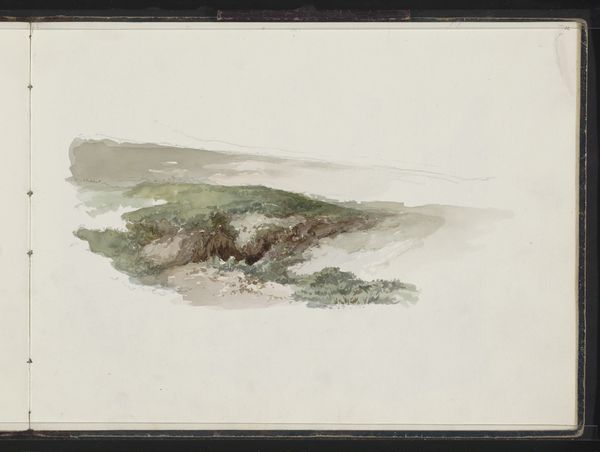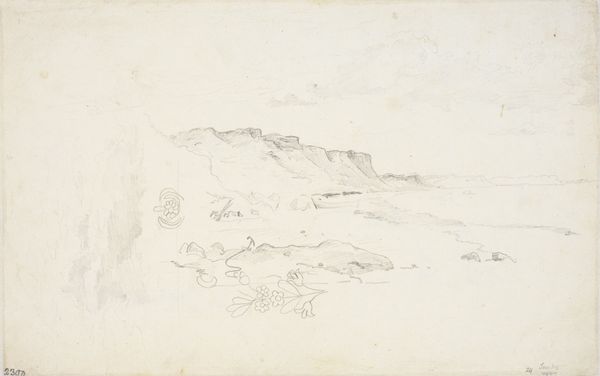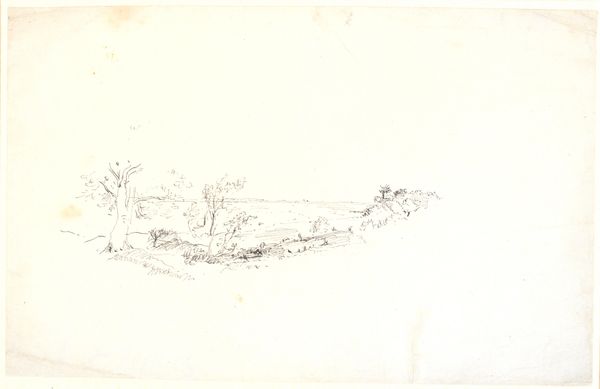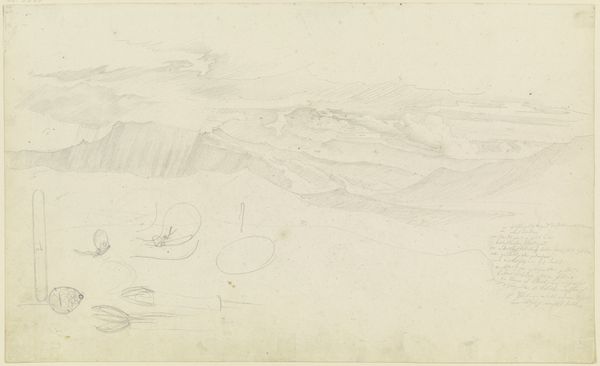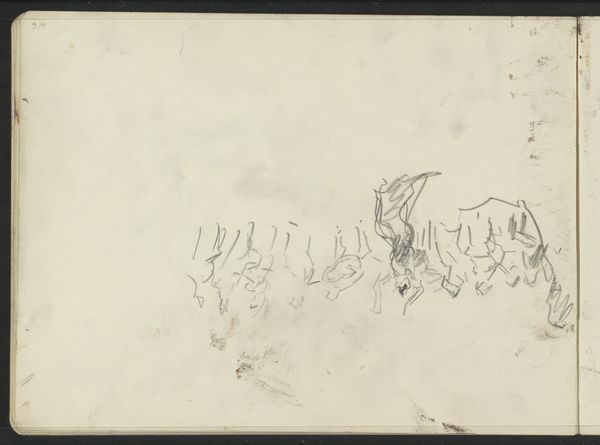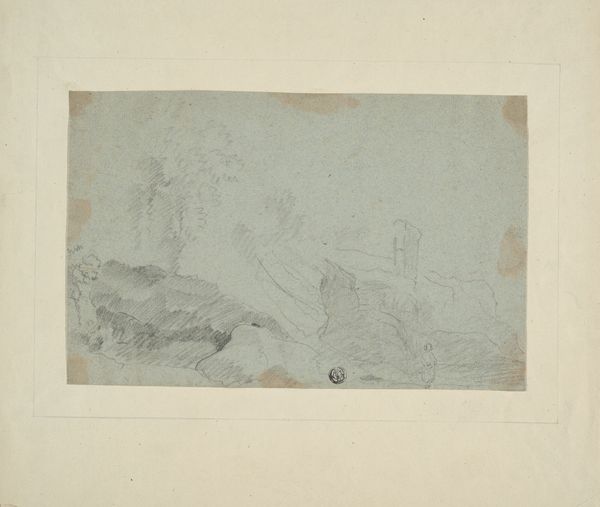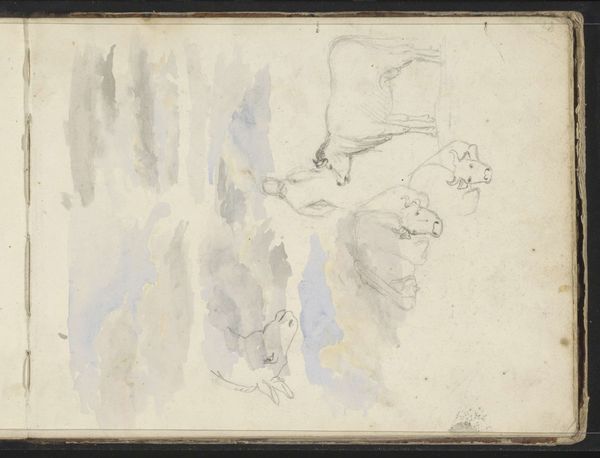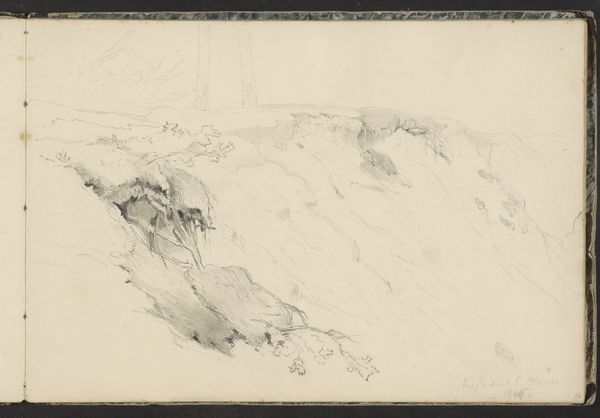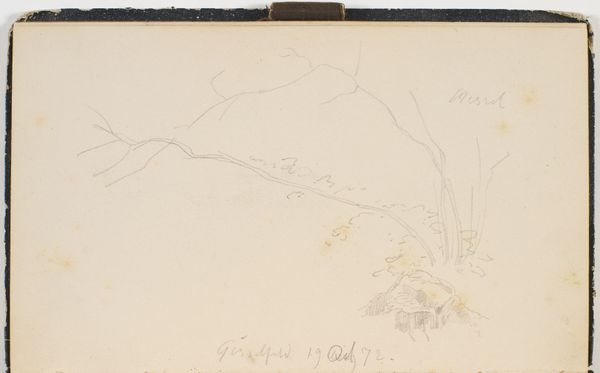
Felsstudie, oben links Studie der Hinterläufe eines Pferdes 1845
0:00
0:00
drawing, paper, watercolor
#
drawing
#
16_19th-century
#
landscape
#
paper
#
watercolor
#
romanticism
#
watercolor
Copyright: Public Domain
Johann Nepomuk Rauch created this study of rocks with a horse’s hind legs in 1845 using pen and watercolour. The study encapsulates the Romantic era's fascination with nature and its sublime power. Rauch made this study at a time when the German-speaking countries were undergoing rapid industrialization. The rise of landscape painting was a way of responding to social changes, through an idealised, and often romanticized, vision of the natural world. Artists responded to the urbanization of the landscape by drawing the public's attention to what was perceived as untouched nature. Here we see the artist closely studying the geomorphology of the rock formations. The presence of the horse's hind legs could reference movement and strength and reminds us of the symbiotic relationship between humanity and the natural world. Art historians can look to travel journals, scientific reports, and literature of the time to better understand the social and institutional contexts of this artwork. The meaning of Rauch's study, like any work of art, is dependent on these contexts.
Comments
No comments
Be the first to comment and join the conversation on the ultimate creative platform.
